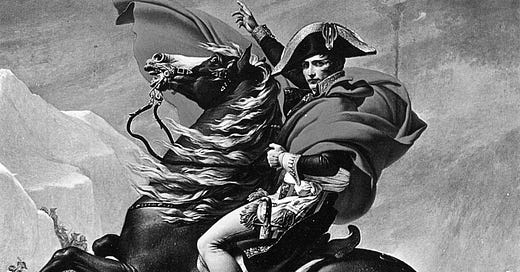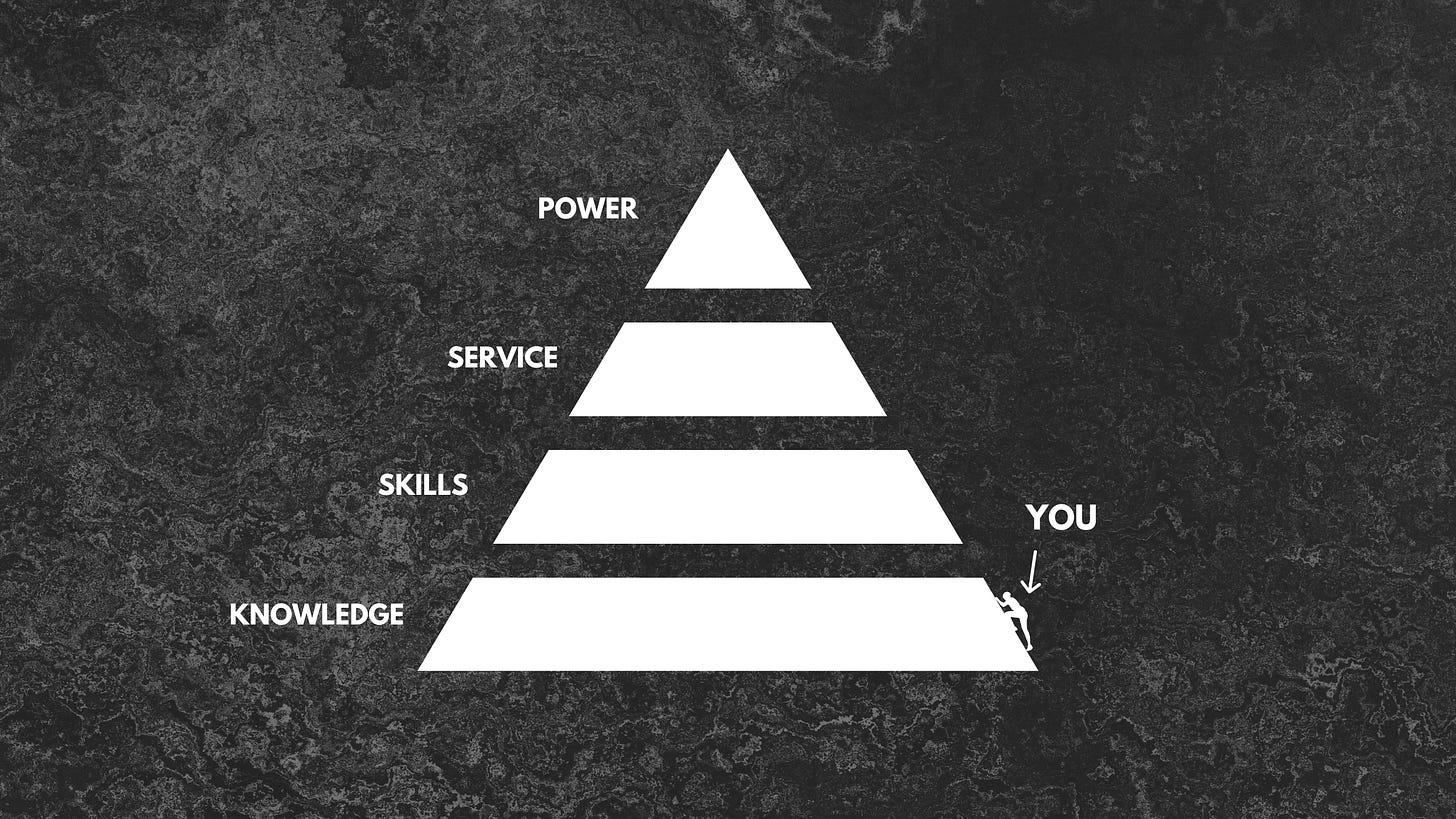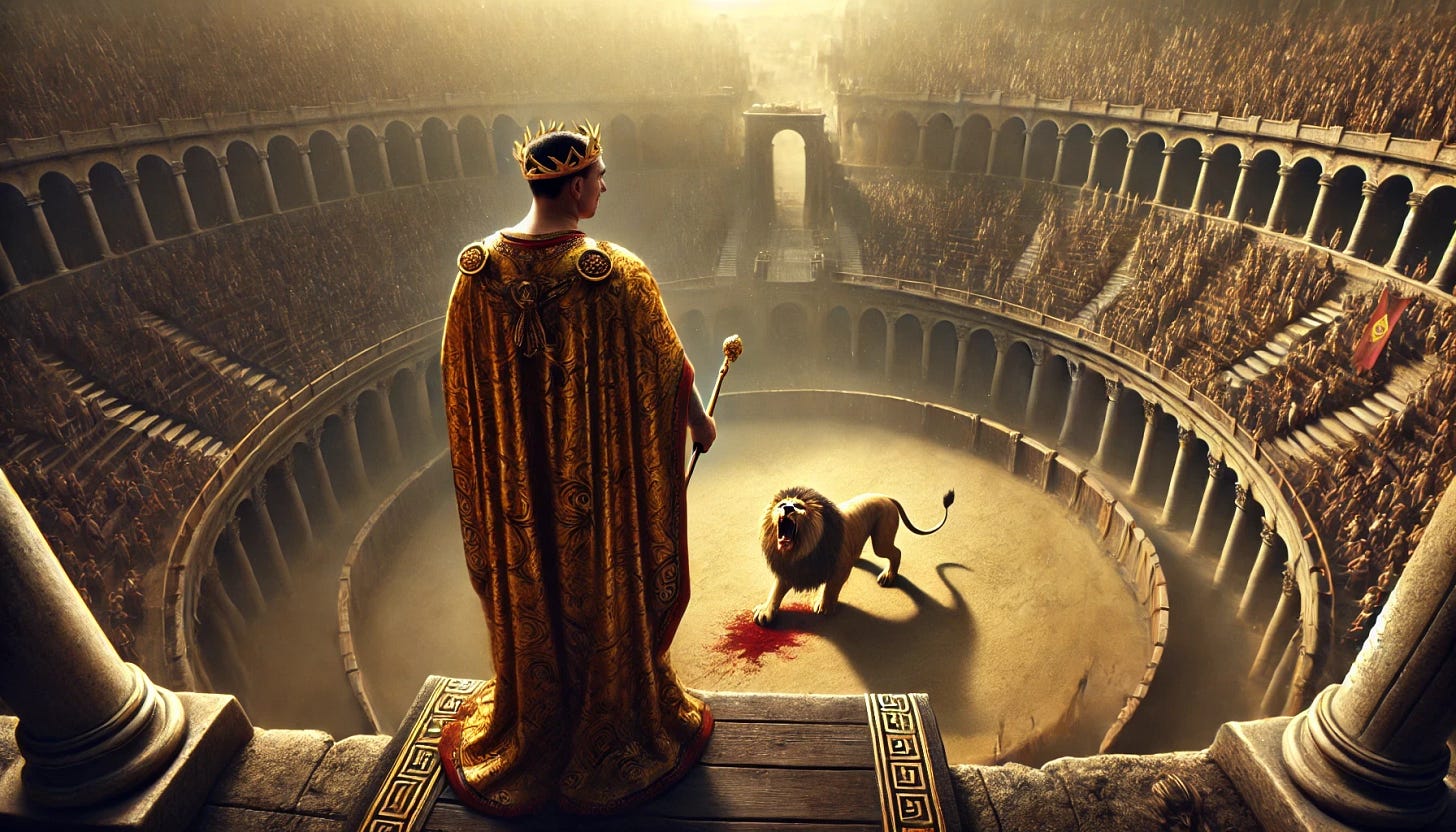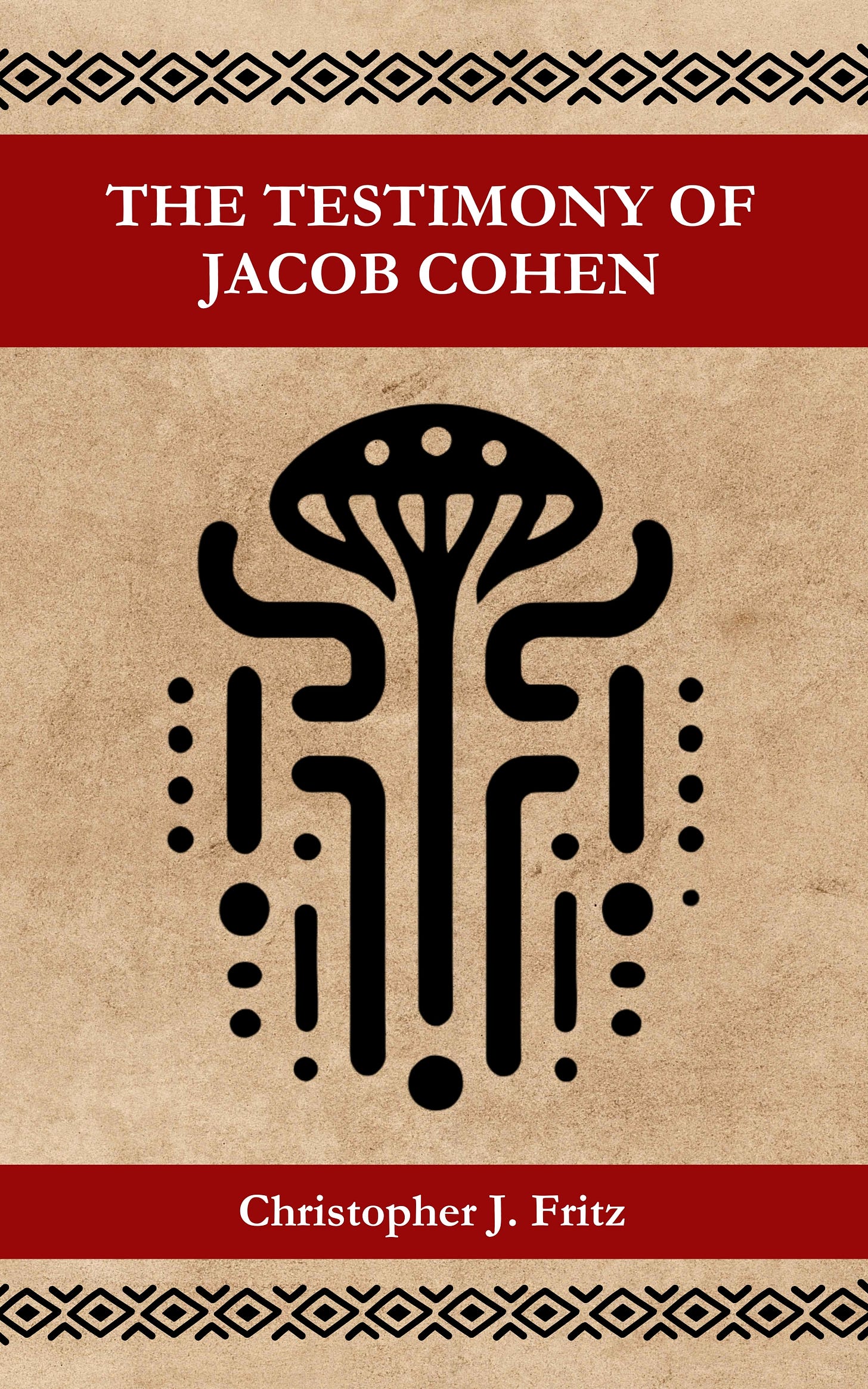On The Nature And Purpose Of Power
Personal growth alone cannot lead you to power
Upgrade To Paid
Support my work and unlock free ebooks, exclusive content, community perks, and my full post archive for only $5 per month. That’s cheaper than a decent beer, a nice coffee, or a fancy candy bar, and it lasts way longer.
The Problem with Personal Growth
There’s a big problem in the personal growth world.
Vanity.
It’s evident in many of the top voices in “holistic self-improvement.” People talk about “leveling up” like life is a video game, but their motivations are generally selfish — their North Star is simply money, looks, status, health or, for the gurus that want to pretend they are elevated, “freedom.”
They are Narcissus, enchanted by their own image — both of what they are and of what they think they are likely to become.
They describe themselves as powerful leaders and freedom fighters, but when push comes to shove, they are neither leaders nor free, because the only thing they use their “power” for is to isolate themselves from a volatile system that fills them with fear.
They reveal their motivations in their claims. They are afraid of being weak, because they know the weak get abused by the strong. They are afraid of being mortal, because youth is beautiful and death and decay are ugly.
On platforms of “become powerful,” “break free,” and “conquer death,” they build castles from which they can look out upon the world and say: “Finally, no force can compel me to leave this bubble of safety, comfort, and pleasure I’ve carved for myself.”
And in these castles, they stagnate.
They build the perfect ponds in which to view their own reflections, where they can reassure themselves they are still tough, still strong, still rich, still beautiful, still healthy — and safe from the forces that might take it all away.
Unfortunately, this type of lifestyle comes with a steep price: even the most beautiful castle has weaknesses and flaws, and so these castle builders find themselves with the endless task of inspecting the walls for cracks.
This is a Sisyphean nightmare that drains all the joy out of an existence that is intended to be hedonistic, but falls short of delivering the comfort, security, and boundless pleasure it seeks.
No matter how much money, booze, food, sex, or vitality these castle builders amass, they still can’t silence the howls of the monsters that stalk beyond the walls.
Anxiety is the blood price of vanity.
X Highlight
I don’t want to criticize biohackers and self-improvement gurus too much though. They do a lot of good, their work inspires others, and their motivations are completely understandable.
But their actions and words tend to betray the insecurities, misery, and pain they still carry, even at the heights of their success.
But why does isolationist hedonism consistently fail?
Why was Epicurus compelled to ceaselessly seek and address the holes in his arguments to defend his doctrine that Pleasure is the ultimate good?
Why are the Wolves of Wall street always starving?
Why are the biohackers and productivity gurus never finished improving?
It sounds trite, but they are all missing the same thing: a higher purpose.
Without something to serve, the path of self-improvement is a treadmill — it will make you stronger, smarter, richer, and more interesting, but it won’t actually take you anywhere.
So, what’s the alternative?
I call it the Pyramid of Power.
The Pyramid of Power
Many people misunderstand the nature of power. They think that power is confidence, money, status, freedom, health.
But that’s not quite true.
Things like money and status can be external signs of power, but real power is something deeper. It’s a bit like a currency of its own — a medium of exchange that people trade to manipulate the world around them. And it emerges as a consequence of what I call the 3 Foundations of Power.
The 3 Foundations are:
Knowledge
Skill
Service
It is on top of these foundations that power rests, and then external attributes like wealth and status are the vehicles through which Power changes the state of reality.
By this definition, a person with low status and little wealth can still have a significant impact on the Universe. Some examples include Socrates, Nietzsche, Van Gogh, and Beethoven.
You might object: “But these are household names!”
But this is how Power works. Like nearly everything else in life, it is subject to the natural law of compound interest. Large masses attract smaller ones, and so just as compound interest is a metaphysical extension of the Order function (most clearly seen in Gravity and Magnetism), so is Power.
What causes an individual’s Pyramid of Power to grow or dissolve over time is the span and depth of each Foundation: Knowledge, Skill, and Service.
Someone who is very knowledgeable, highly skilled, and of great service to many people will accumulate much power, and perhaps even grow in power after death.
Someone who is ignorant, unskilled, and of little service or usefulness to others will have little power and likely be forgotten after death (if not sooner).
However, there is a reason these foundations are arranged in a hierarchical pyramid instead of as a trinity of pillars: each one rests atop the one below it, and they cannot be inverted.
To build skills, you must possess knowledge. To be of service, you must be skilled.
And of course, this brings us to the missing piece of Personal Growth that traps so many people in a mirrored cage of vanity:
To rise to your ultimate potential and wield true power in the world, you must serve others.
Why?
Because, when you bravely lead and deeply serve others, they add their power to yours.
This is called an alliance, and this mechanism — alliance formation — is what has allowed humans to become the apex predators of the planet.
X Highlight
A lone human rests firmly in the middle of the food chain, like a coyote — a predatory scavenger that can easily be killed by deadlier predators and prey, including other primates.
But an alliance of humans can harness fire, build shelter and weapons, stockpile resources, and transform the environment to serve their needs.
It is the alliance that provides the power, and individuals who are knowledgeable, skilled, and generous can form larger and stronger alliances than those who are not.
This is how Julius Caesar turned his enemies in Gaul and Germany into his allies, won the hearts of the Roman people, and was elevated to Emperor.
This is also how Donald Trump won the 2024 election. Or, more specifically, this is how DOGE, MAHA, and the multipartisan alliance in favor of reducing government surveillance and control won the 2024 election, with Trump functioning as the glue.
However, in Caesar’s case, his failure to forge alliances with the existing powers (the Senators) is also what ultimately got him killed — not only was he not useful to them; he was a direct threat to their power.
Similarly, the Trump administration must beware the Ides of March, because no one becomes powerful without making powerful enemies.
This is What Real Power Looks Like
The key difference between weak men, men who get trapped by vanity, and men who wield real power is the number of people they hold themselves responsible for.
Weak men expect others to take care of them. They are Nietzschean Camels. These men spend their entire lives as slaves.
Vain men take care of themselves, but refuse to take care of anyone else. They are Nietzschean Lions. These men rise to become warriors and aristocrats.
Powerful men take responsibility for others and pursue a vision greater than themselves. They are Nietzschean Children. These men become kings.
There has recently been an explosion of hate directed from men towards other men who feel deep love for their wives and children.
This is weak, vain energy: Lions roaring at Kings from the killing floor of the Coliseum.
Roaring might make the Lions feel better, but it won’t make them Kings.
This is because the essential kingmaking quality of a man is a deep desire to serve people who don’t exist yet — the people of the future, who will live in the shade of the trees he plants.
Vain men can become champions, but only great men can become Kings.
X Highlight
Let’s briefly discuss Moses.
Moses was born to a Hebrew family in Egypt at a time when the Pharaoh had ordered the death of all newborn Hebrew boys.
To save his life, Moses’s mother floated him down the Nile and prayed that he would be rescued.
And he was.
By the Pharaoh’s daughter.
As a result, he was adopted into the Pharaoh’s family and blessed with a life of wealth, comfort, education, and privilege.
But one day, as an adult, Moses saw a Hebrew slave being abused in the street. A spirit of vengeance moved in him, fueled by the love he felt for his people — and the hate he felt for their oppression.
Overtaken by rage, Moses killed the Egyptian taskmaster abusing his kin.
But he lacked wisdom and discipline, and he had acted not according to resolution, but to passion. So, hoping to avoid the consequences of his actions, he hid the body in the sand.
But word of the murder spread rapidly. Eventually, Pharaoh found out.
So, Moses fled before Pharaoh could have him executed.
He hid in the wilderness for 40 years.
He was mentored by an old desert Patriarch named Jethro, then he married Jethro’s daughter Zipporah, started a family, and spent the proceeding decades stewarding his small domain.
During his exile, the sands of time smoothed his jagged edges. He became wiser with age.
And then, Moses met the Most High God.
That Which Is.
The Highest Purpose.
“I AM.”
And what did That Than Which Nothing Can Be Greater tell Moses to do?
To serve his people. To break their chains and lead them to a new life of freedom and prosperity.
At first, Moses resisted. He said: “I’m not the guy for this. Send someone else.”
But there was no one else. This call was for Moses, alone.
Eventually, he accepted it.
He had a problem though: he had a speech impediment and was poor at expressing himself. To resolve this, he forged his first critical alliance with his brother Aaron, who was an excellent communicator.
Together, they laid out their demands for freedom before a furious Pharaoh. He refused. Chaos ensued. 10 plagues struck Egypt. Eventually, Pharaoh told the Hebrews to leave — he wanted no more trouble, and instead just wanted them gone.
So the Hebrews followed Moses into the wilderness. However, they soon got blocked by the Red Sea. At this time, Pharaoh pursued them with murder on his mind.
In this pivotal moment, Moses looked at the sea, at his people, and at his pursuers, and then recalled his ultimate purpose. Then, he wielded the power of Creation to part the waters and open a way forward where there previously was none so his people could cross to the other side.
This path led his people to freedom, and led the Egyptians to a watery grave.
But Moses’s challenges were far from over.
For another 40 years, Moses led his people through the desert while they grumbled, complained, and rebelled. He built a justice system, learned to delegate power to qualified allies, and kept the Hebrews on the path to the Promised Land of Prosperity.
Moses appointed Joshua as his successor, trained him, and blessed him before the people so that Joshua could carry on his legacy.
And then, finally, Moses led his people to a great victory in a battle against their enemies, and he climbed a mountain to look over the Promised Land in which his people would build a future.
And on that mountain, Moses learned that he would never set foot in the Promised Land:
“This is the land which I swore to Abraham, Isaac, and Jacob, saying, ‘I will give it to your descendants’; I have let you see it with your eyes, but you will not go over there.”
— Deuteronomy 34:4
After this divine revelation, Moses died — not in despair, though, but in peace and joy, with his mind and his eyes firmly fixed on the destiny he’d made possible for his people and their descendants.
And this joyful moment eclipsed all the bliss he ever could have had if he’d stayed in the decadence of the palace or remained in the comfort of his simple, independent life in exile.
By serving others, Moses became powerful, and by becoming powerful, he created a future of prosperity for his people.
This outcome was only possible because he grew from a boy protected by Pharaoh’s daughter into a man who could take care of himself, and then even further into a man who had the knowledge, skills, and spirit of service required to lead his people to peace, safety, and opportunity.
The ultimate trade a man can make is to sacrifice his present success, comfort, and safety for the people of the future. This is what it means to be a Patriarch.
How to Escape the Prison of Vanity and Unlock True Power
To escape vanity’s mirrored prison, you must choose your North Star carefully.
For example: if you make health, vitality, or immortality your highest calling, that will hold you back from doing anything dangerous for “the greater good,” because there is no greater good.
That means, if your best friend or daughter is trapped in a burning building, it will be against the greatest good to save them, because in doing so you will risk harm and even death — this is unacceptable if personal health is the highest calling.
If wealth is your highest calling, then all philanthropy is out of the question, as is all spending aside from the direct acquisition of assets to grow that wealth. That means it will be morally unjustifiable, for example, to buy a safer car for your wife after she gives birth, or to put money towards your child’s education — because these things drain your wealth without bringing a financial return to you, personally.
In this way, selfish vanity blocks you along your path to power, because real power demands vulnerability, sacrifice, and interdependence.
This is why the most powerful men in the world aren’t always the healthiest, the wealthiest, the most attractive, or the most famous. They might briefly become those things, but the truth is that health, wealth, beauty, and status are secondary to the real force that sculpts the world: Power.
For example, it’s a near certainty that Andrew Tate would beat Donald Trump in a 1-1 fight. Does that make Tate more powerful than Trump?
Of course not. To suggest otherwise would be completely stupid.
Trump’s power comes from his ability to negotiate, to win allies, to craft compelling narratives, to inspire and unify the populace, and to make tactical leadership decisions that benefit billions of people.
This is why, if you want power, you eventually have to get off the treadmill of “personal growth” and go into the real world — of risk, consequences, and real strife.
Working out, eating clean, and cold plunging will make you healthier and stronger, but it won’t help you get to a position where you can protect free speech from corrupt regulators who want to silence dissident thought.
Building a business “empire” with a great product, awesome marketing, and a big personal brand can make you rich, but it can’t keep you from getting cut off from your own money that’s stored in a bank when you say something that really powerful people don’t like.
Real power isn’t found in the gym, or in the bank, or in your follower count on a platform someone more powerful than you owns — it is forged in win-win alliances with others.
Your power increases based on how many people you choose to protect from chaos and lift to new heights of peace and prosperity.
And, again, that number — how many people you can serve — increases with knowledge and skill.
So, let’s briefly recap.
True power — the kind that can change the world — rests on top of 3 foundations: knowledge, skills, and service.
Knowledge opens your mind to truth and allows you to visualize new possibilities.
Skill gives you the means to facilitate change.
Service aligns other knowledgeable and skilled people to your vision so that you can execute at scale.
Keep this Pyramid of Power in mind, and let it guide you forward.
The future is bright.
Yeehamaste, folks 🤠
Buy My Book
The Testimony of Jacob Cohen is a cosmic horror story about an archeologist on an Antarctic expedition who discovers a mysterious ziggurat that hides terrifying secrets from a forgotten past.
It draws inspiration from the narrative style of Dracula, the real-life Endurance expedition led by Ernest Shackleton, and Dionysian cult mysticism, along with modern astronomy, astrobiology, and mycology.
Helpful Links: Official Website | Latest Book | Podcast | YouTube | LinkedIn | X















